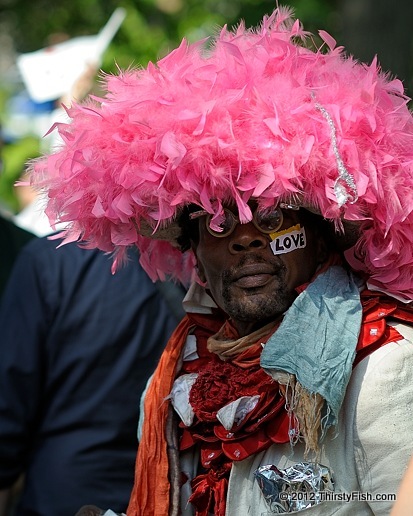Occupy Wall Street: Clandestine Love / Legal vs Moral

There has always been a discrepancy between what is legal and what is considered to be moral, ethical and right. Throughout history, the questions, what is moral, what is ethical, what is right, and what is wrong have preoccupied religions, thinkers, philosophers, historians, and theologians. While there are some ethical standards that are universal across cultures, such as, a parent's duty to his or her child, prohibition against killing useful members of society, and interpretations of the golden rule, many other ethical standards, and consequently laws, vary based on the beliefs and values of individuals and societies.
Edward Coke, one of the greatest jurist of the Elizabethan and Jacobean eras, wrote: "Reason is the life of the law; nay, the common law itself is nothing else but reason... The law, which is perfection of reason". But, in reality, laws are generally constructed around the accepted ethical standards of a society, and reason is an auxiliary tool built around these ethical premises. Reason is objective, but ethics is generally subjective.
A quick review of history will reveal that things are not that "innocent". Justice systems and laws are built, written and modified by power structures, and more often than not, in their own favor. Many historic atrocities were committed "legally". For example, in the United States, slavery was abolished in 1865, at the end of the Civil War, 89 years after the Declaration of Independence. It took another 100 years before equal civil rights were granted to African Americans.
Today, there is a threat of regression in the American Justice System. The Glass-Steagall Act, which was enacted in 1933 to prevent the likes of another Great Depression, was repealed in 1999, with pressure from the Banking Industry. Many economists believe that the 2008 Financial Crisis, whose effects we are still feeling, is a direct result of this repeal. Many other corporate influenced laws, from healthcare to student loans have also proven disastrous for the majority of the population. More recently, a section of the NDAA 2012, which had ambiguous language that jeopardized the First and Fifth Amendment rights of American citizens, and threatened journalists and dissidents in movements like Occupy, was successfully challenged by a group of intellectuals. However, it is disturbing that in the 21st Century, there is a push for laws which disregard the Constitution, give special privileges to corporate interests, and suppress dissent.
Maybe we ought to look back 1623 years to put things back in context. In his book De Libero Arbitrio (On Free Choice of the Will - 389), St. Augustine of Hippo wrote: "An unjust law is no law at all". If one of the greatest and most influential Christian thinkers of all time believes that an unjust law is not binding, do we have a moral responsibility to stand up against unjust laws? Quoting St. Augustine again: "Hope has two beautiful daughters. Their names are anger and courage; anger at the way things are, and courage to see that they do not remain the way they are".
More Occupy photos.
Song of the Day: Power And The Passion - Midnight Oil (1982)
Posted
- Wed 2012-05-23
Captured
- 2012-05-01
- New York, NY


